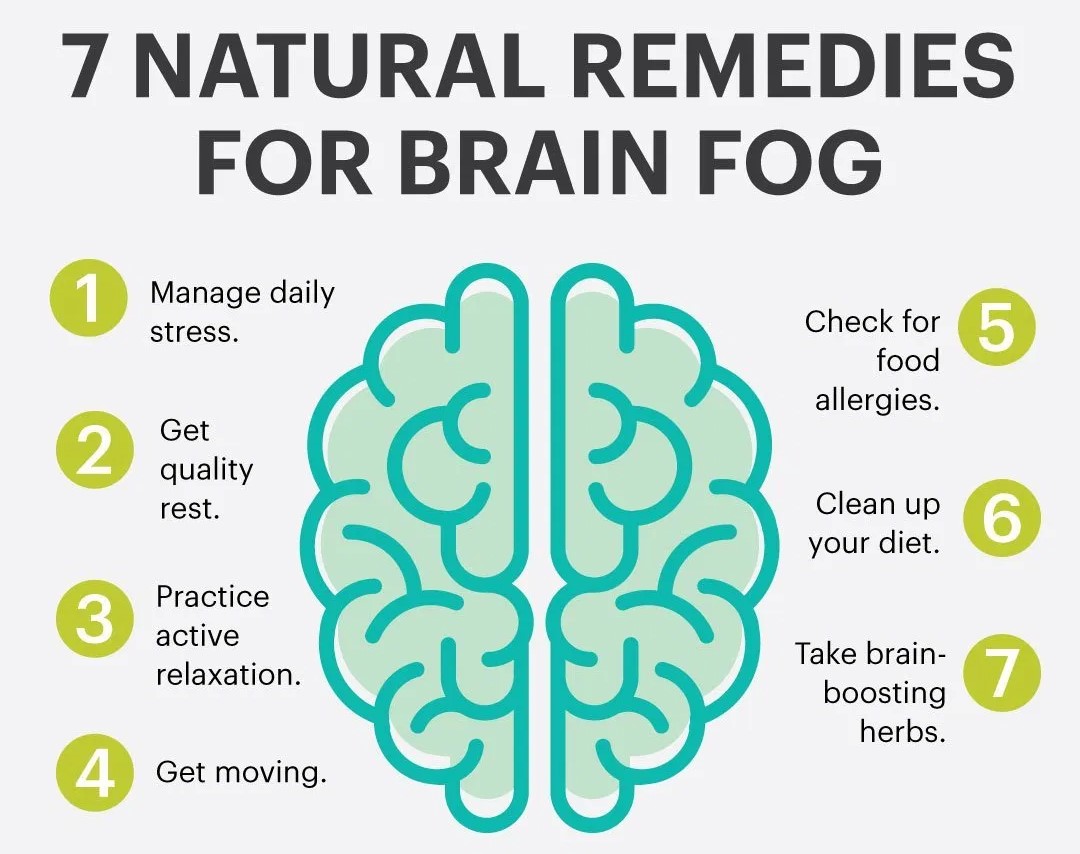Do you feel as if you’re forgetful or absent-minded during or before your period?
It could be brain fog. And fluctuating period hormones are the culprits again.
Brain fog refers to the phenomenon where your brain’s cognitive functions are reduced, resulting in forgetfulness, absent-mindedness, and reduced problem-solving skills. Many women experience some degree of brain fog during their period, and although the causes are highly debated upon, it all comes down to hormonal changes at the end.

What Causes ‘Period Brain’?
Normally, the causes of brain fog are many, including diet, medications, or a medical condition that you may be suffering from. But, when you’re on your period, its mostly your hormones playing games.
According to research conducted in 1995 at Umea University in Sweden, scientists discovered that estrogen receptors affect several proteins in various areas of brains, including parts that play a role in thinking. Considering the fact that levels of estrogen fluctuate a lot during menstrual cycle, it’s no wonder that many women complaint about reduced concentration and forgetfulness during or before their periods.
However, studies in this field are still inconclusive. While some researches suggest that high levels of estrogen result in poor cognition, other findings show that high levels of this hormone improve cognitive functioning.
Should You Be Worried?
Before we go into the details of what brain fog is and how it affects you, let’s first clear one thing; brain fog is not a major issue, and a little forgetfulness doesn’t mean you’re losing your mind!
In a sense, although the word “brain fog” may be intimidating, but it’s nothing to worry about!
The symptoms will be mild in most cases and may disappear after a day or two. You can also improve your mental concentration with simple lifestyle and dietary changes.
Symptoms of Brain Fog
It’s hard to identify brain fog symptoms since its research is still limited. However, these are common symptoms that women often experience during their period:
- Lack of concentration and lower alertness
- Feelings of stress and anxiety
- Forgetfulness or absent-mindedness
- Feelings of indecisiveness
- Lack of motivation and mental fatigue
Many of these symptoms may be associated with other conditions that you experience as a side effect of menstruation. For example, period cramps may also cause stress and mental fatigue, amongst other symptoms.
However, in general, if you’re experiencing forgetfulness or a lapse of concentration during your period each month, it can be attributed to brain fog.
What Causes Brain Fog?
Several factors may cause brain fog, but hormonal fluctuation is the primary cause. In the first stage of the menstruation cycle, certain hormones such as estrogen and progesterone fluctuate intensely and may cloud the brain’s functioning.
The serotonin and dopamine levels may also increase, resulting in a lapse of concentration, irritability, and other side effects. If you’re one of the few lucky people who get a dopamine burst during this phase, you’ll experience feelings of happiness and joy. However, the higher hormone levels will nonetheless cause a lapse in concentration, or better cognitive functioning, depending upon how the hormones affect you.
Nevertheless, since brain fog isn’t a scientifically proven disorder, your doctor or therapist won’t diagnose it. Which also means you’re perfectly healthy and this phase too shall pass!
How to Cope with Brain Fog Symptoms?
You can’t control your natural hormonal fluctuations during your period, but you can control how your body reacts to it.

Here are some tips to help you improve your focus and manage the symptoms of brain fog:
-
Eat Brain-Boosting Foods
If you’re struggling with a lack of concentration, eat brain foods such as fish, pumpkin seeds, broccoli, dark chocolate, and nuts. These foods contain serotonin, which can boost your cognitive functions, resulting in better focus and problem-solving abilities.
They may also balance the levels other hormones in your body, giving you more clarity of thought. So, if you’re struggling to concentrate during your period, add these brain-boosting foods to your diet.
-
Regulate Your Brain Dopamine Levels with Exercise
Studies have shown that exercise can help regulate the dopamine levels in your brain, giving you more presence of mind. Regular exercise can also help improve your focus as it improves the blood flow towards the brain.
To stay comfortable while exercising during your periods, choose the widest sanitary pads and embrace womanhood with comfort!
-
Get Enough Sleep
If you’re feeling irritated or struggling to concentrate, take a short nap. You’ll be amazed at the soothing effect that a nap can have on your focus. Also, ensure that you get at least 8 hours of sleep at night daily. You’ll see an instant improvement in your problem-solving abilities, and it will lessen the effect of brain fog.
-
Take Vitamin Supplements
Brain fog and lack of concentration are often due to a lack of essential vitamins and minerals. Vitamins B and D, magnesium, and iron are 3 nutrients that your brain needs to function properly. If you’re struggling to focus, try taking vitamin and mineral supplements with the guidance of your doctor.
-
Cut Down on Stimulants Like Sugar and Coffee
Sugar, coffee, and other stimulant foods will often lead to a spike in dopamine and other brain chemicals, causing you to lose focus. Have you ever noticed that you become hyperactive or struggle to focus after eating sugary foods?
Since your brain is already clouded with many of these chemicals during your period, avoid foods that will stimulate their production.
-
Just Relax
Lastly, remember that a small lapse in concentration isn’t really something to worry about. The best you can do is to relax and get on with your life. Of course, this is easier said than done!







